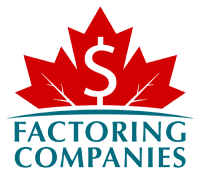What You Need to Know About Receivable Factoring
Business owners facing cash flow shortages understand the stress and strain that this situation causes. Even if your business is successful, and you have accounts receivable just waiting to be paid by your clients or customers, that doesn’t necessarily mean that you have stable financial footing. Receivable factoring provides you with the means to get around that problem. Not familiar with the term “receivable factoring”? You might know the process better as accounts receivable financing, or even invoice factoring, but it all comes down to the same thing.
What Is Receivable Factoring?
Really, factoring receivables is nothing more than leveraging the invoices you already have in order to obtain the liquid capital necessary to move your business forward and grow. Here’s how it works:

That’s the process in a nutshell, but chances are good you have quite a few questions about accounts receivable factoring, and how it can benefit your business.
Receivable factoring is a highly beneficial process that allows you to tap into capital that’s locked up in your company in the form of as-yet unpaid invoices from your clients and customers. That’s an important distinction to make – this is your money, it’s just not been received yet. Factoring accounts receivable does not constitute a loan. Again, it’s your money. You just need a little bit of help to access it.
Who Benefits from Receivable Factoring?
This is actually a very easy question to answer – anyone can benefit from factoring receivables. Whether you’re running a start-up, own a small business, or helm a mid-sized company, if you need liquid capital and don’t have access to funds because your customers haven’t paid their bills yet, receivable factoring can be a good fit. It can give you the money needed for just about any needs. Some of the most common uses for a factoring advance include:
These are just a few examples of what you could use that money for, but there are many others. Again, it’s your own company’s money, so it can be used for anything that your business needs.
How Does Receivable Factoring Work?
We laid out the basic process of how factoring works above, but there’s a little more to it that you should understand.
First, you need to have outstanding invoices that are owed by your clients or customers. Without any actual receivables, you cannot take advantage of factoring, which means you’ll need to consider other forms of financing, such as obtaining a loan from a bank. However, if you do have unpaid invoices, there’s no need to go through the hassle of dealing with bankers.
Second, you’ll need to find the right factoring company. There are more than a few factoring firms in Canada, and they’re not necessarily all the same.
You’ll find generalist firms that work with pretty much anyone, as well as firms that specialise in helping companies within specific industries. Examples of this include trucking and logistics specialists, warehousing specialists, construction factoring companies and more.
Third, you’ll need to scrutinise several things about the factoring company before signing a contract. Ideally, you’ll compare several factoring companies in order to make an informed decision. The most crucial considerations you’ll need to make are outlined below.
Advance Amount
The entire point of receivable factoring is to obtain liquid capital that is locked up in those unpaid invoices. The factoring company will give you an advance on the invoice total, but you’ll find that different factoring companies offer different advance amounts. In general, you can expect to see between 70 and 90% of the invoice total in an advance. Some companies will advance up to 97% of the invoice total, though. Once the invoice has been paid by your customer, you’ll receive the remainder of the invoice amount, less the factoring fee.
Factoring Fee
The factoring fee is the actual cost of doing business with a factoring company. Like advances, each factoring company charges a different fee for their services. Usually, this amount goes up with more services rendered, or longer timelines between when you sold the invoice and when your customer pays the invoice. For example, let’s say you have an invoice for a customer that is not due for 90 days. You’ll be charged more for factoring that invoice than you would if the remaining time was only 60 days, or 30 days. It’s in your best interests to understand not just the amount of the fee, but how that amount will change with different durations.
Other Fees and Charges
In an ideal world, the only fee you’ll have to pay is the factoring fee. However, some factoring companies do assess other charges, and you need to be prepared for those. You might be lured into doing business with one factoring company by promises of high advance amounts, low factoring fees and the like, only to find out that they tack on numerous other charges that ultimately make them more expensive to do business with than another company. Scrutinise your contract closely, and watch for hidden fees and charges.
Disclosure
Most factoring companies will tell your client that you have sold their invoice and that the factoring firm will be collecting the amount due. This may not be a problem, but then again, it could be an issue. It really all depends on your customer and whether or not they’re comfortable with (and cognisant of) factoring. Many businesses are aware of how beneficial factoring can be and will not have an issue with the process.
Recourse or Nonrecourse
You’ll find that there are two types of factoring out there – recourse and nonrecourse. Recourse receivable factoring simply means that if your customer doesn’t pay the invoice, you’re held responsible. In short, you’ll need to repay the advance to the factoring company. That can be difficult, or even impossible in some cases. The best way to proceed with recourse factoring is to ensure that you’re only selling invoices for customers that you know for a fact are not at risk for nonpayment.
Nonrecourse factoring is a little rarer, but more beneficial in that you’re not held responsible if your client doesn’t pay. The factoring company takes on that responsibility, and you do not have to repay the advance. Of course, there are a few cons to this situation. For instance, nonrecourse factoring generally carries a higher factoring fee, which makes sense since the factoring company is taking on more risk and needs to protect itself.

Additional Benefits of Working with a Receivable Factoring Company
While the single most important benefit of factoring is having access to cash immediately, rather than having to wait for your customers to pay you, there are other advantages to be found when working with a factoring firm. Depending on your situation, the size of your business and the number of employees you have, these could provide significant additional value. One of the most important benefits here is that some factoring firms will actually act as the billing and collections arm of your company.
For entrepreneurs, sole business owners and small business owners, this can be a crucial benefit. How much time do you spend each month doing nothing but billing and collections? Chances are good that it’s a considerable amount. That’s only going to increase as your business grows, and it can eventually turn into a full-time job in its own right. Of course, every single minute you spend on billing and collections is time that you’re not doing what you do best (running your company). A factoring firm can take over your billing and collections, freeing your time to focus on growth and expansion.
However, there’s a caveat here. Some factoring firms actually require you to let them act as your billing department moving forward, at least for the customer in question. If you’re not comfortable with giving up long-term control over that aspect of your business, it’s best to find a company that offers spot factoring, which is just the ability to factor one invoice at a time without any long-term contracts or requirements.
Yet another advantage here is that you don’t need to worry about your business’ credit when it comes to receivable factoring. The entire process is based on your customers’ credit, not yours. So, even if you don’t have perfect credit, you can still get an advance on your invoices to ensure sufficient cash flow through your business at all times.
Factoring also has a number of benefits when compared to getting a loan from a bank. For instance, receivable factoring isn’t capped the way a loan is. Once you’ve burned through the money in a loan, that’s all there is. With factoring, you just sell another invoice (or benefit from a long-term arrangement that factors all the invoices from a particular customer).
You also don’t have to worry about interest payments, and the process is far faster than getting a bank loan. Banks might take a month or even two to provide you with a loan or line of credit, while factoring companies will generally have your advance to you within 24 to 48 hours.
Many factoring companies will help ensure that you can reduce risks in your own business by running credit checks on potential customers. This is in their best interest, certainly, but it also helps you avoid problem customers that might not ever pay their bills.
Finally, partnering with a factoring company for the long-term might be a worthwhile consideration, particularly if your clients routinely take a long time to pay their bills, and you have ongoing needs for access to liquid capital. Factoring is scalable, which means that as your receivables grow, so does the flow of capital into your business (without the worry and hassle of waiting for your customers to finally get around to paying the invoice).
Choosing a Receivable Factoring Company
As we’ve mentioned, receivable factoring companies are not all the same. You need to ensure that you’re working with the right company for your needs. Of course, that requires you to know those needs ahead of time, so you can vet each potential partner accurately.
How much cash do you need? Are you comfortable factoring all future invoices from a particular client? Is that client comfortable knowing that you’re selling their invoices? Will you benefit more from spot factoring or long-term factoring? Do you need to work with a specialist factoring company that has in-depth experience with your industry, or would a generalist be a better choice?
These are just a few of the questions you’ll need to answer. We can help. We have years of experience helping businesses just like yours find the right receivable factoring partner. We invite you to take advantage of the free consultation with one of our factoring experts and learn just how simple it can truly be to get access to the liquid capital locked up in your unpaid invoices.
Get an instant factoring estimate
Factoring results estimation is based on the total dollar value of your invoices.
The actual rates may differ.
CLAIM YOUR FREE FACTORING QUOTE TODAY!
PREFER TO TALK?
You can reach us at
1-866-477-1778
Get an instant factoring estimate
Factoring results estimation is based on the total dollar value of your invoices.
The actual rates may differ.
CLAIM YOUR FREE FACTORING QUOTE TODAY!
PREFER TO TALK? You can reach us at 1-866-477-1778

